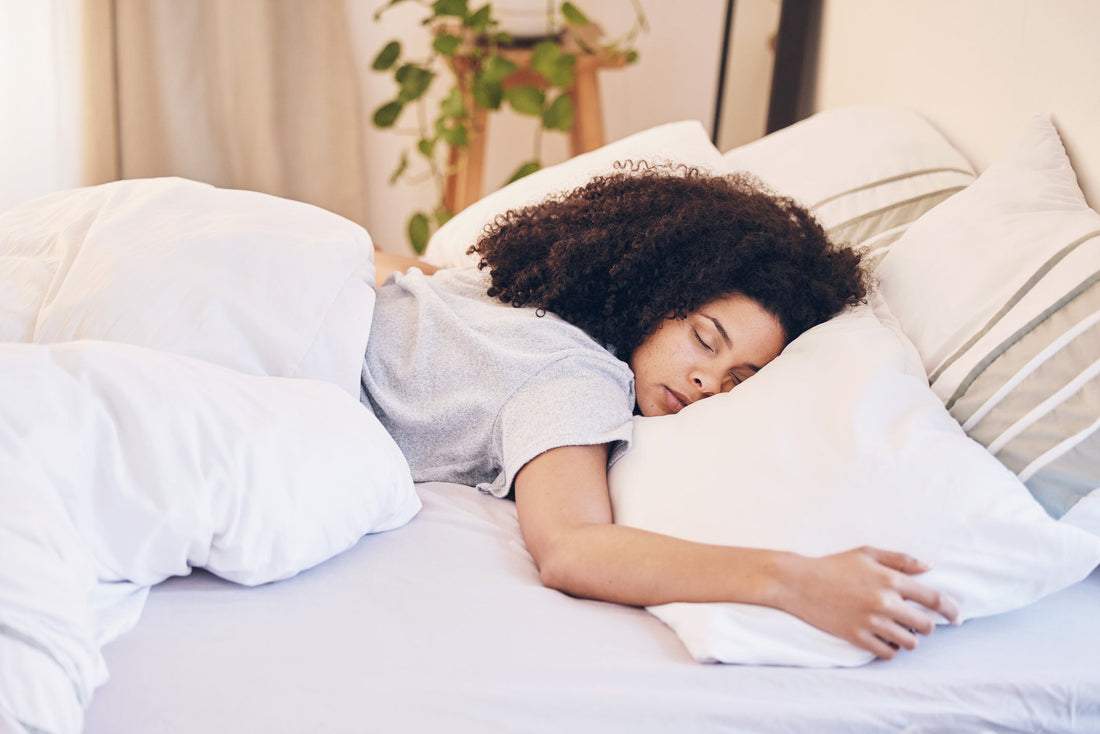
Improving Sleep Quality for a Restorative Rest
Share
Quality sleep is not just a luxury; it is a fundamental pillar of our overall health and well-being. Yet, in today's fast-paced world, achieving restful and rejuvenating sleep can often feel like an elusive dream. This guide aims to shed light on the importance of sleep hygiene and provide practical tips and insights to help you improve your sleep quality. By exploring various aspects of sleep hygiene, such as establishing a consistent sleep schedule, creating a sleep-conducive environment, and incorporating relaxation techniques, we can unlock the key to unlocking a peaceful and restorative slumber. So, if you're ready to embark on a journey to transform your sleep and reclaim your vitality, read on and discover the secrets to achieving the restful sleep you deserve.
Understanding Sleep and its Benefits
Sleep cycles, including non-rapid eye movement (NREM) and rapid eye movement (REM), are vital for physical and mental well-being. Deep, restorative sleep during the NREM stage promotes muscle growth, tissue repair, cognitive function, and emotional regulation, enhancing mood, focus, and decision-making. Quality sleep also supports the immune system, helping to prevent illnesses and improve overall health.
Common Sleep Issues and Their Causes
Sleep disorders can have a profound impact on our well-being, hindering the quality of our sleep and overall health. Insomnia, a common sleep disorder, involves difficulty falling asleep or staying asleep. It can be triggered by factors such as stress, anxiety, depression, medication, or irregular sleep patterns. Sleep apnea, another prevalent sleep disorder, is characterized by repeated interruptions in breathing during sleep. It can be caused by a blocked airway (obstructive sleep apnea) or a failure of the brain to send proper signals for breathing (central sleep apnea). Sleep apnea not only disrupts sleep but also increases the risk of cardiovascular problems and daytime fatigue. Restless leg syndrome and other movement disorders can also significantly affect sleep quality, as they cause an irresistible urge to move the legs or involuntary limb movements during sleep. These conditions lead to fragmented sleep and excessive daytime sleepiness. Additionally, disruptions to our circadian rhythm, such as irregular sleep schedules or shift work, can further impair sleep quality.
The Role of Sleep Hygiene in Improving Sleep Quality
Improving sleep quality hinges on embracing good sleep hygiene practices, which encompass various strategies for cultivating an optimal sleep environment. Crucial to this is establishing a consistent sleep schedule and routine, syncing with our body's internal clock for a more regular sleep pattern. Creating a sleep-friendly atmosphere involves factors such as lighting, noise, and temperature control, achieved through dimming lights, reducing noise, and maintaining a cool, comfortable temperature. Incorporating relaxation techniques and bedtime rituals, like reading or deep breathing exercises, aids in unwinding before sleep, while managing electronic device usage minimizes disruptions to melatonin production, easing the transition into slumber. Promoting healthy sleep habits also involves engaging in activities that promote relaxation, optimizing bedding and bedroom conditions for comfort, and implementing relaxation techniques to induce a state of tranquility conducive to restful sleep. By integrating these practices into our routines, we can foster a more rejuvenating sleep experience, enhancing overall well-being and daily performance.
The Impact of Lifestyle Factors on Sleep
Lifestyle factors have a profound impact on sleep, and understanding their influence can help us optimize our restorative rest. Nutrition plays a crucial role, and consuming heavy meals close to bedtime or foods high in sugar and caffeine can disrupt sleep. On the other hand, a balanced diet with sleep-supportive nutrients promotes better sleep quality. Exercise and physical activity influence sleep patterns, with regular moderate-intensity exercise improving sleep duration and quality. Managing stress and reducing anxiety are vital for restful sleep, and incorporating stress management techniques and establishing a relaxing bedtime routine can help calm the mind. Additionally, substances like caffeine, alcohol, and nicotine can significantly impact sleep, with caffeine interfering with falling asleep, alcohol disrupting later sleep stages, and nicotine affecting sleep onset. Minimizing or avoiding these substances, especially close to bedtime, contributes to better sleep quality.
Reishi and its Benefits for Sleep
Reishi, a functional mushroom with a rich history in traditional medicine, has gained recognition for its potential benefits in promoting relaxation and improving sleep quality. Scientific studies have suggested that Reishi may help regulate sleep cycles, reduce sleep latency (the time it takes to fall asleep), and enhance overall sleep quality. These effects are attributed to Reishi's bioactive compounds, including triterpenes and polysaccharides, which are believed to have calming and stress-reducing properties.
Incorporating Reishi into a bedtime routine can be done by pairing it with calming herbal teas like chamomile to create a potent blend that promotes relaxation and supports a restful night's sleep. You can browse our Reishi tincture formats here.
Other Natural Remedies and Practices for Better Sleep
In addition to Reishi and chamomile, there are several other natural remedies and practices that can contribute to better sleep. Herbal supplements and teas, such as chamomile or valerian root, have been used for centuries to promote relaxation and improve sleep quality. These natural remedies can be incorporated into a bedtime routine to help calm the mind and prepare the body for sleep. Aromatherapy, using essential oils like lavender or bergamot, can also be effective in creating a soothing atmosphere and promoting relaxation before bedtime. The gentle scents of these oils can help alleviate stress and anxiety, setting the stage for a more restful sleep. Mind-body practices like yoga or progressive muscle relaxation can be beneficial in reducing tension and promoting a state of tranquility. Engaging in these practices before bed can help release physical and mental stress, facilitating a smoother transition into sleep.
Seeking Professional Help for Persistent Sleep Issues
If you are experiencing persistent sleep issues that significantly impact your daily life, it may be time to consult a healthcare professional. Chronic sleep problems can be indicative of underlying health conditions or sleep disorders that require proper diagnosis and treatment. Healthcare professionals, such as primary care physicians or sleep specialists, can assess your symptoms, medical history, and sleep patterns to determine the best course of action. They may recommend undergoing diagnostic tests, such as a sleep study or polysomnography, to monitor and evaluate your sleep patterns and identify any potential sleep disorders. Based on the findings, healthcare providers can offer tailored treatment options, which may include lifestyle modifications, behavioural therapy, medication, or specialized therapies like continuous positive airway pressure (CPAP) for sleep apnea. Collaborating with healthcare professionals is crucial to understanding and addressing the underlying causes of sleep issues, allowing for effective management and improvement of sleep quality and overall well-being.
Conclusion
In conclusion, prioritizing sleep hygiene is paramount for achieving restorative and rejuvenating rest. We have explored various aspects of sleep hygiene, including establishing a consistent sleep schedule, creating a sleep-friendly environment, incorporating relaxation techniques, and managing electronic device usage. These practices can significantly impact sleep quality and promote overall well-being. Additionally, exploring natural remedies like Reishi can offer potential benefits for enhancing sleep, thanks to its relaxation properties. By incorporating Reishi into a bedtime routine or exploring other natural remedies like chamomile tea or aromatherapy, individuals can further support their sleep journey. We offer Reishi tincture in an Original and Alcohol-Free format. It is crucial to recognize that achieving quality sleep requires a holistic approach, considering lifestyle factors, managing stress, and seeking professional help when necessary. By prioritizing sleep hygiene and adopting healthy sleep habits, we can experience the transformative power of restorative sleep, leading to improved physical and mental well-being. So, let us embrace the importance of sleep hygiene and make it a priority in our lives for the sake of optimal health and vitality.



